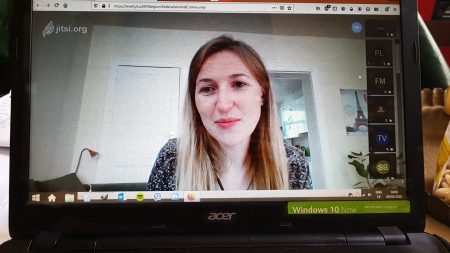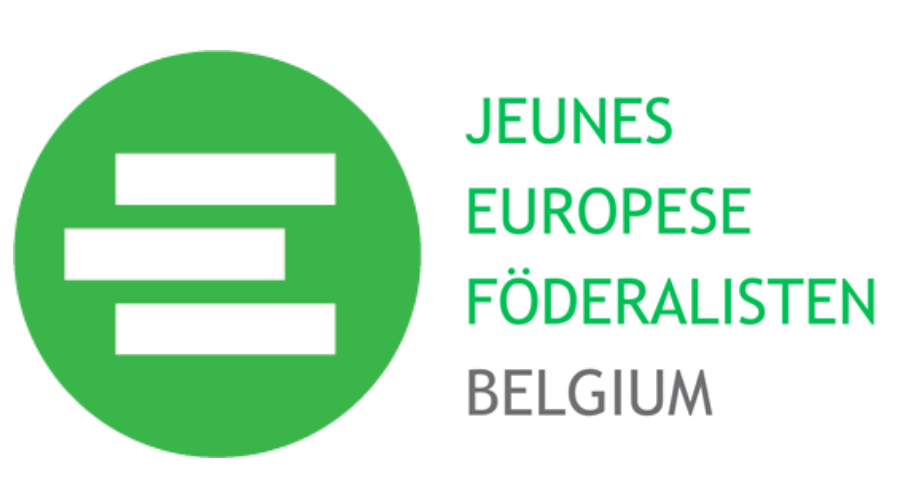Europe Day 2020 – What To Remember
9 May was a busy day for all those who care about Europe! At JEF Belgium, we marked the 70th anniversary of the Schuman declaration with a 3-fold programme “Celebration – Reflection – Discussion”.
As our celebration, we invited young people from across Belgium to send us videos of them dancing, playing an instrument or goofing around to the tune of the European anthem. We were surprised and amazed to receive entries from Germany and Bulgaria, too. Check out the video here!
As our reflection, we hosted an online seminar exploring the link between Federalism and Community. Community is an interesting concept that includes anything from our local networks, linguistic communities in Belgium, right up to the European Communities (now the European Union).
JEF Belgium is convinced that the next step for moving towards a federal Europe is to develop a supranational community!

Lauren Mason, International Officer, moderated the webinar
- Victoria Martin De La Torre, author of the book ‘Europe, a leap into the unknown’, guided us through the historical link between federalism and community. Robert Schuman already mentioned the idea of community, which he saw as embodying freedom of choice and the common good. These were also his goals in founding the ECSC. Victoria also evoked the historical idea of community as an “intermediate actor” between politicians and people. Today we would call this concept “civil society” – and as JEFers, we are proud to be part of it!
- Yves Dejaeghere, Guest lecturer in political science at the University of Antwerp, & coordinator of the G1000 movement spoke about bringing the process of politics right down to the level of local communities, by getting citizens involved in political decision making in between election cycles. His initiative G1000 brought randomly selected citizens in German-speaking East Belgium into a citizens assembly. He gave us some great food for thought about how to shift politics out of the hands of the educated elites and into the communities.
As Anna-Lena Sender, President of JEF Belgium, closed the webinar:
“If we want our future on this continent to be peaceful, prosperous, healthy and ready for global challenges, we need to be one strong community of European citizens – with all our local, regional and national identities. The main learning of today’s webinar is that federalising Europe is by no means contradictory to strong local or regional communities. On the contrary, federalising Europe allows for new, innovative models of governance and citizen participation to improve the distribution of power, ability to act and democratic legitimacy over the different political levels. It allows us to create meaningful communities from local to European level.”
As our discussion, we joined in with JEF Europe and UEF’s event #RethinkingtheUnthinkable.This event brought together EU activists, journalists, bloggers, youtubers and Members of the European Parliament to discuss Europe’s prospects after 70 years of integration. As the Coronavirus crisis has shown, Europe is facing a stark choice: a radical shift to a real political union, a federal union, or the risk of collapsing under the weight of opposing national egoism.
